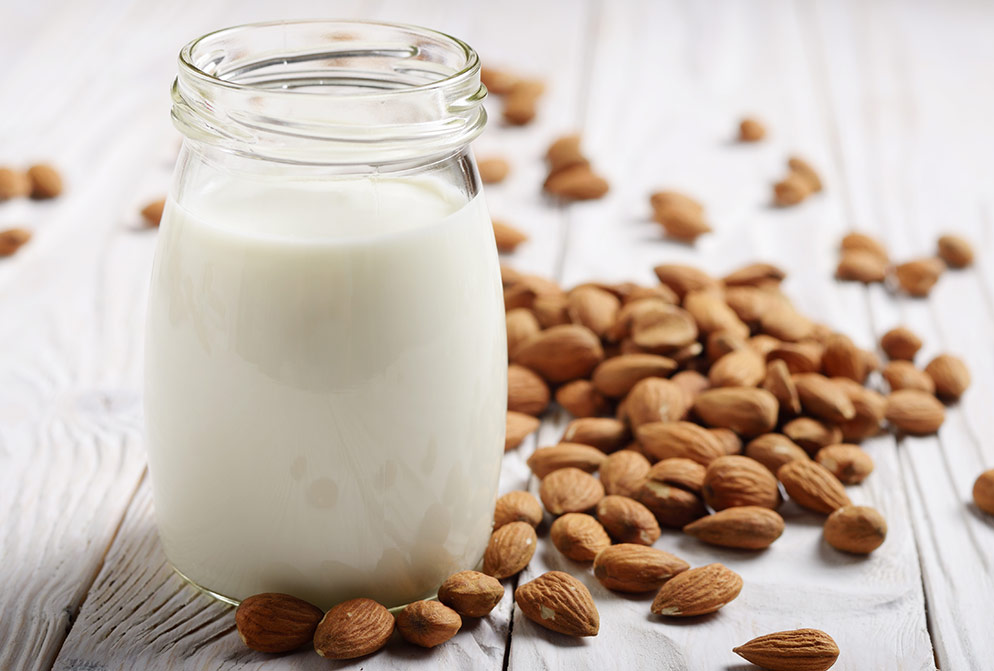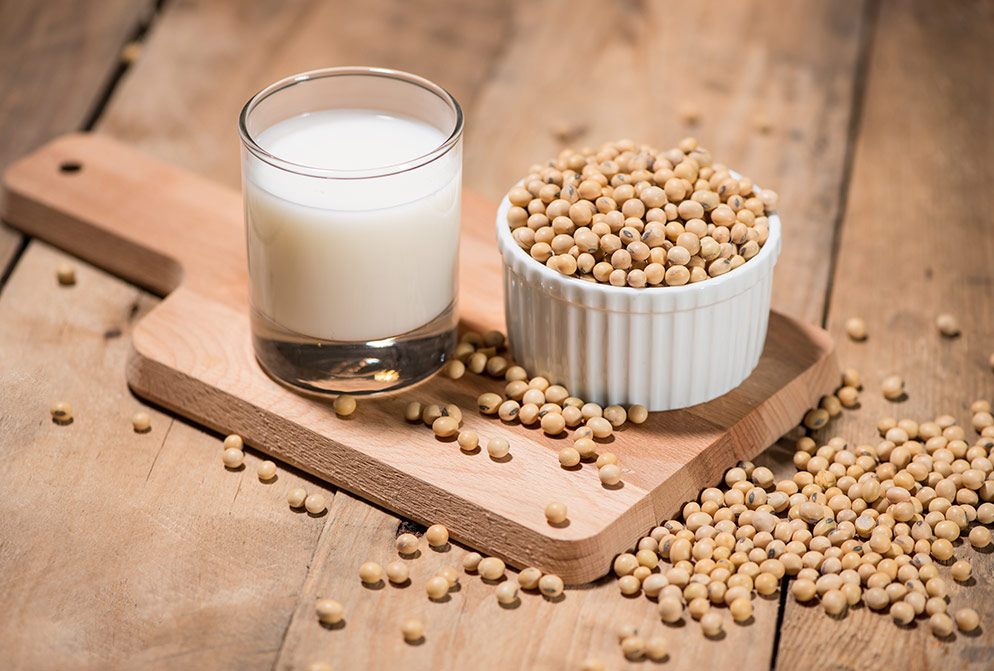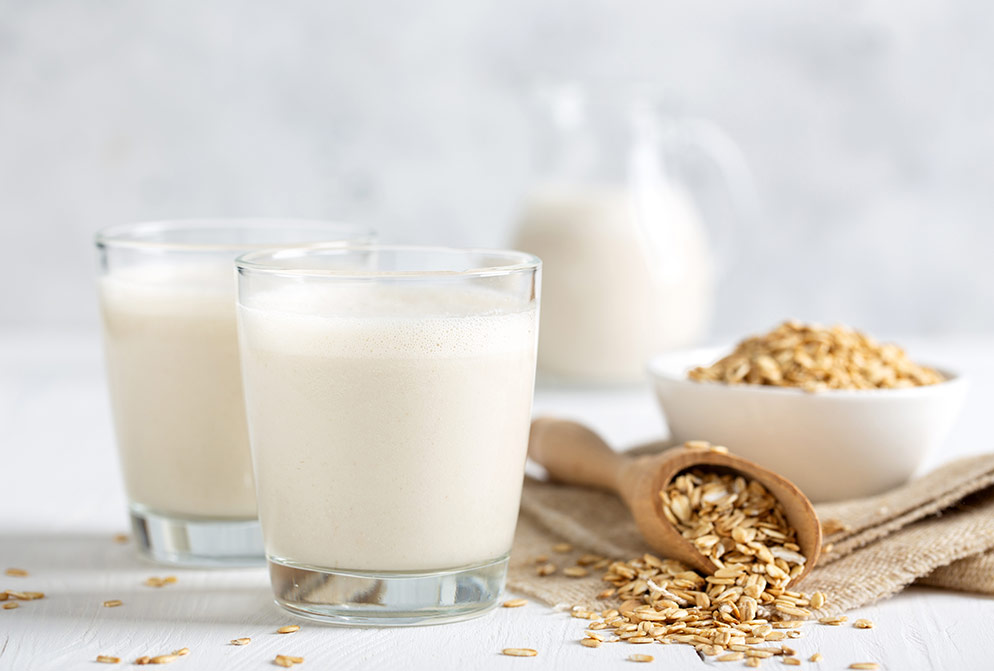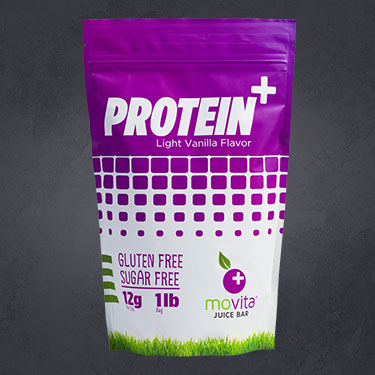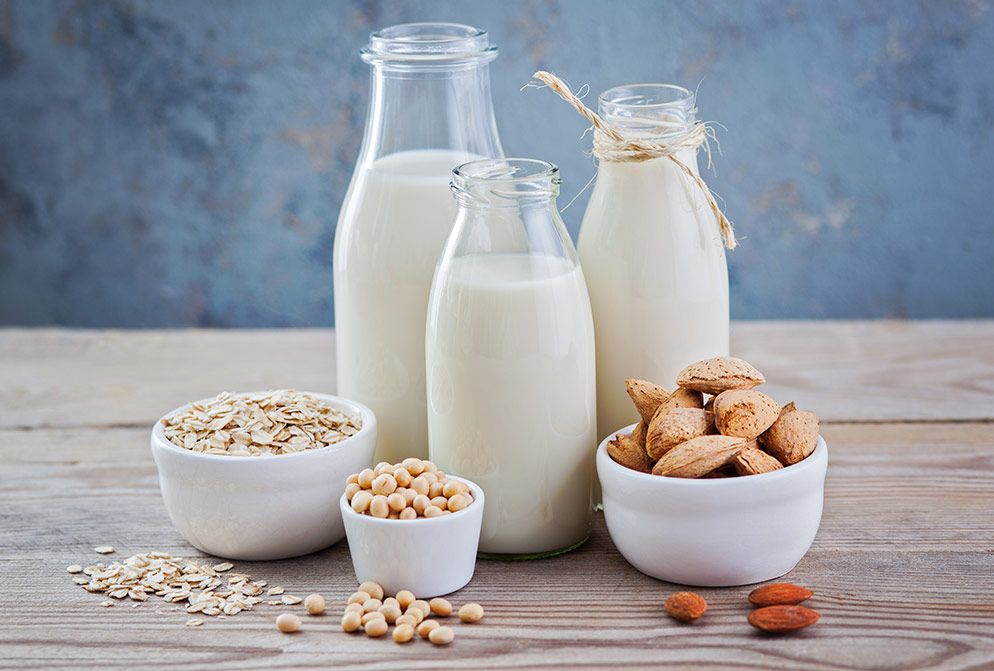
As more individuals embrace plant-based lifestyles, the world of non-dairy milk alternatives has expanded, offering a plethora of choices. Let’s take a look into the realms of almond milk, soy milk, and oat milk, unpacking their unique qualities and nutritional advantages. Whether you’re a seasoned vegan or a curious newcomer, let’s explore plant-based alternatives and discover the diverse options available to elevate your daily beverages.
Almond Milk: A Nutty Delight
Begin by unraveling the delightful nuances of almond milk. Crafted from ground almonds and water, this non-dairy option offers a subtle nuttiness and a light, refreshing taste. Almond milk is low in calories and saturated fat, making it a good choice for those watching their weight. Additionally, it is naturally lactose-free, making it suitable for individuals with lactose intolerance. However, it’s important to note that almond milk may not be suitable for those with nut allergies.
Soy Milk: The Protein Powerhouse
Soy milk is a plant-based milk made from soybeans and water. It has a mild, neutral taste and a similar protein content to cow’s milk, making it a popular choice for those seeking a protein-rich alternative. Soy milk is a complete protein source, meaning it contains all essential amino acids. It also contains phytoestrogens, which may have potential health benefits. However, individuals with soy allergies should be cautious, and there have been discussions about the potential hormonal effects of consuming soy.
Oat Milk: Creamy Goodness with a Heart-Healthy Twist
Oat milk is a dairy-free milk made from whole oat grains and water. Known for its creamy texture and slightly sweet flavor, oat milk has gained popularity, particularly in coffee shops for lattes and cappuccinos. Oat milk is naturally high in beta-glucans, a type of soluble fiber that supports heart health. It is often chosen for its low environmental impact, as oats are considered a more sustainable crop. However, individuals with gluten sensitivity should be aware that some oat milks may contain traces of gluten.
Each of these plant-based milks has its unique characteristics, nutritional benefits, and considerations. Choosing between almond milk, soy milk, and oat milk ultimately depends on personal taste preferences, dietary needs, and any potential allergies or sensitivities. Experimenting with each option can help individuals discover the plant-based milk that best suits their lifestyle and preferences.
See you for our next blog post!
Follow us on Instagram @movitajuicebar
DISCLAIMER: These statements have not been evaluated by the FDA. The information is for informational purposes and is not intended to treat, diagnose or cure any illness. Consult a physician before taking any action.
Want to contribute great content?
We are looking for contributors provide our readers with great healthy content to encourage positive living. If you're interested in becoming a contributor pease email us at blog@movitajuicebar.com
